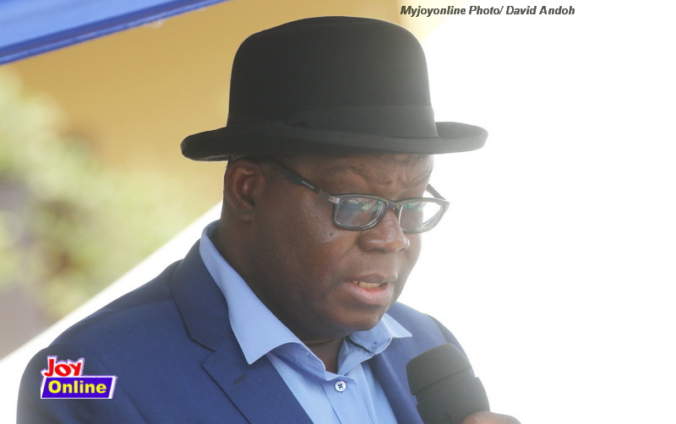The National Association of Graduate Teachers (NAGRAT), has stated that it does not see the need for an increment in the current 11% contribution workers pay to the Social Security and the National Insurance Trust (SSNIT) to guarantee their future.
According to the President of NAGRAT, Angel Carbonu, if SSNIT is unable to make proper use of the amount of money paid monthly, there is no assurance that when the amount is increased it will be able to manage it properly.
Speaking on JoyFM’s TopStory on Monday, April 29, he asked, “Why would you want us to increase contribution rate when the outcome of your management is indicated that you have failed?
“How do we call for increment when an international body has determined that you have not prudently managed the institution.
“The little that we have given you, you have not been able to render account on your stewardship then you are calling for more money?”
Mr Carbonu explained that until the leadership at SSNIT is changed even if monthly contributions are increased, it would make no difference.
“What has changed in terms of governance? What has changed in terms of government control? When you have an organisation that is infested with political appointment and instead of being accountable to the contributors, you are accountable to a political figure. Is this an institution that can justify a call that people should increase their contribution? From where I sit, the answer is absolutely no,” he added.
His comment follows a report by the International Labour Organisation (ILO), which projected a complete depletion of SSNIT’s reserve by 2036 in an actuarial valuation study of SSNIT's viability.
According to ILO, total income including contributions, investment income and other income, will no longer be sufficient to pay for annual expenditures including benefit payments to pensioners by 2029.
“Starting in 2029, total income (contributions, investment income and other income) is no longer sufficient to pay for annual expenditures. The reserve starts to decrease. During the year 2036, the reserve drops to zero” the research emphasised.
Among the major recommendations, the research suggested that contributions be increased.
SSNIT’s Chief Actuary, Joseph Poku, said although this was a good idea, SSNIT must follow some laid-down procedures before it can enforce any new increase beyond the current 11% of workers' pay from their basic salary.
However, the NAGRAT President questioned whether SSNIT had lived up to its mandate considering that housing projects it developed with workers in mind could not be afforded by workers.
He stressed that he did not think he would ever support an increment but would call for a change in the governance structure of SSNIT.
Mr Carbonu said they should "make the contributors more representative on the board of SSNIT and ensure that it follows the rules and regulations in investing people’s money."
Latest Stories
-
2025 Bankers Football League launched to foster unity and well-being in the banking sector
1 second -
We can’t fight galamsey, it’s a waste of time – Former MP
12 minutes -
Gyamfi Kumanini SECTECH appeals for urgent government support amid infrastructure crisis
17 minutes -
Bright Simons alleges massive rot at Development Bank Ghana
20 minutes -
Ghana and neighbours host 160,000 displaced persons as EU pledges €10m support for West Africa
23 minutes -
Bonn Climate Talks: Africa has eyes on $1.3 trillion climate finance roadmap
25 minutes -
Career Fair inspires rural students in Tano North to dream bigger
28 minutes -
Bridging Africa’s data science and artificial intelligence gap: How ERDSI is leading the change to meet global demands
30 minutes -
Over 200 former MMDCEs meet Bawumia as NPP flagbearer race intensifies
43 minutes -
Commitment to fiscal responsibility key to economic stability – Stanbic Bank’s Oforiwaa Attipoe
44 minutes -
PMI crowned champions of the 2025 GMA Group CEO’s Cup
1 hour -
Fidelity Bank launches ‘Wheels and Homes Expo 2025,’ bridging gap to home and car ownership
1 hour -
OSP vs Ofori-Atta: Former Kufuor advisor shoots down political colourisation debate
1 hour -
Commissioner of Insurance charges insurers to champion informal sector products
1 hour -
U.S. visa is a privilege, not a right – Embassy in Ghana
2 hours

